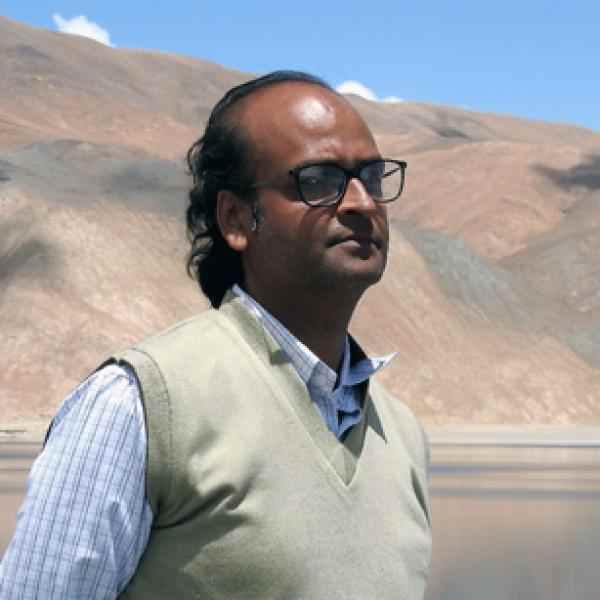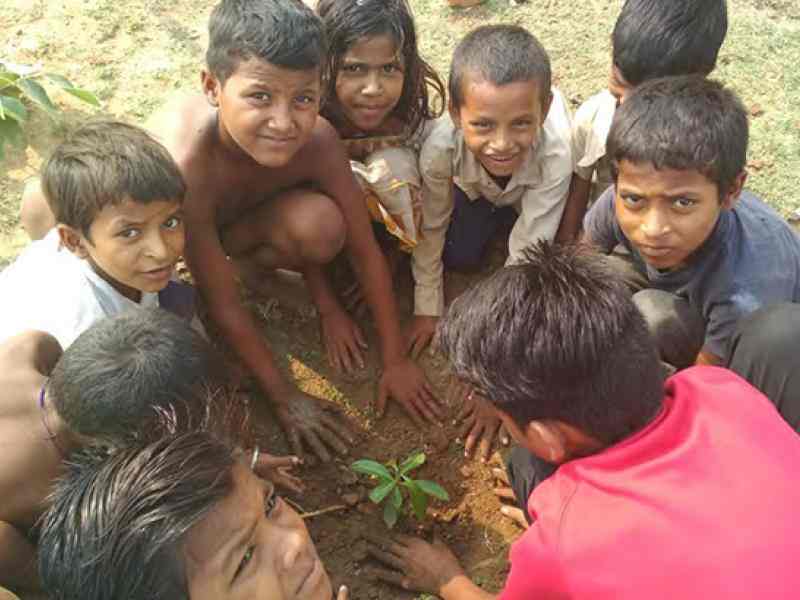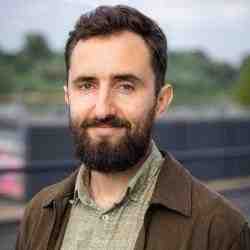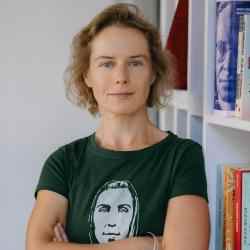Einführung
His organization is a facilitator trying to develop a culture of rights-based and evidence-based approach in journalists and civil society organizations. Works with more than 50 grassroots organizations and 340 journalists from the mainstream media Played an active role in making the MP government realise malnutrition as an issue. Also, has successfully helped many CSO's in advocacy of their issues through the media, helping in large scale changes and affecting many national and state policies.
Die neue Idee
Recognising the untapped potential of the mainstream media in India, to shift the mindsets of key stakeholders like the government, judiciary and the reading public, Sachin Jain is creating a cadre of informed and empathetic changemaker journalists and re-purposing their role from being passive reporters to critical agents who can influence large-scale social change.
Sachin is leveraging the influence of these mainstream media journalists by introducing an evidence (case studies-driven), research (data-driven) and rights-based approach in their coverage of large-scale social problems, like malnutrition for instance. In addition, by creating trust-based partnerships between these journalists and on-ground CSOs, Sachin is powering a collaborative advocacy platform, wherein large scale social problems are represented holistically at a systemic level instead of being reported as isolated incidents, that has the potential to influence institutions like the judiciary and the legislature to change their policies towards more sustainable and long-term change.
On one hand, Sachin’s organisation, Vikas Samvad Samiti (VSS, meaning “Society for Dialogue on Development”) is building a deeper understanding of social issues in CSOs via trainings and knowledge materials, and their capacities to raise these issues with the media via workshops on how to collect evidence, do media-friendly reporting, arrange press conferences etc. On the other hand, VSS is building a holistic perspective of social issues in journalists by initiating dialogues through media conclaves & forums and facilitating field-visits between journalists and CSOs, as well as supporting them to make their stories comprehensive by providing media-friendly credible and updated information on policy analysis, infrastructure analysis, grassroots-level data, etc. via their resource center.
Sachin is creating a demand for these changemaker journalists in the media through frequent media conclaves at district, state and national-levels, and a prestigious media fellowship program. Further, Sachin aims to embed these changemaker journalists across the media organisations and establish through them a new and sustainable form of advocacy to solve large-scale social issues.
Das Problem
Large scale social problems prevalent in rural areas occupy no more than 2 percent in mainstream media coverage (Economic & Political Weekly, 2011). Even within this small percentage, stories are covered from a uni-dimensional reporting perspective, instead of investigating the systemic gaps that led to the development of the problem. For instance, when children in a rural tribal community die of hunger, the media merely reports the incident as - “13 children die of malnutrition due to poverty”. However, there is no focus on the fact that the deaths are a consequence of many interconnected factors - both local and systemic - like failure of the ICDS scheme (government’s child development scheme), the local communities being denied the access to local forests produce, the larger issue of displacement and migration, insufficient budget from the government towards the issue, etc. Till now, there has been no platform for the journalists to build this holistic
perspective on issues (one which is very essential while advocating), as it does not lie in the media’s commercial priorities.
Given the media’s lack of interest, crunch of bandwidth and an extreme pressure to publish stories, journalists have very few resources and even lesser time for writing in-depth stories on complex social problems that can create awareness and empathy in the reading public, decision-makers and the media itself, towards those affected. As a result, the role of the journalist has been reduced to mere reportage of incidents that have a short public memory. Mutual distrust between the citizen-sector organisations and the mainstream media, who each think the other is corrupt, further exacerbates this gap between the social problem and its necessary solution (awareness creation, policy change, legal amendments), and slows down the process of change.
Given the influence that the mainstream media thrives on, Sachin is creating a role for mainstream media journalists in advocating for, and ensuring solutions to large scale social issues faced by the most marginalized communities in India.
Die Strategie
Sachin is flipping the role of mainstream media journalists from being passive reporters, who focus only on isolated incidents, to changemakers who play a key role in driving solutions to large-scale, entrenched social problems. In addition, he is also creating the conditions for such journalism to thrive, by working with other key members of the ecosystem like the CSOs, building their capacity to work alongside these journalists to ensure constant monitoring, evaluation and advocacy to improve the quality of the solutions.
For the journalists, firstly, VSS facilitates media field visits between national and state-level journalists, who either want to cover a story or just understand issues better, and grassroots CSOs. The journalists stay in the field for 3-4 days and come back with a detailed understanding of on-ground issues, with case studies and other key information for writing about them from a more powerful perspective. This gives a true picture at a local-level but does not give one at a systems-level, which leads to Sachin’s second intervention.
To amplify their message further, the media needs specific and authentic data on the issue, along with clear analysis. VSS plugs this information gap through their resource center, which is comprised of 3 important aspects – “information packs”, newspaper cuttings, and books & publications. “Information packs” are synthesized but detailed 10-page reports on various socio-economic issues, which include updated data on budget analysis, infrastructure analysis, grassroots-level data, etc. from credible sources like National Family Health Survey, National Sample Survey, Census, research publications like The Lancet, etc. VSS has created and open-sourced 180 such information packs on various issues like malnutrition, child safety, migration, to name a few, which has enabled journalists to prepare complete narratives in a short time and bring out the flaws in the system. Along with this, VSS maintains newspaper cuttings of social issues brought out in the papers since 2000 (the Hindi language clippings are still not available online) for journalists to study the history of issues. Finally, VSS’s library hosts 7,000 books &
publications on social issues, legal aspects, advocacy training material, etc. which are used by CSOs and journalists who would like to research further.
In order to systemize the connection between the CSOs, social problems and media, and create a demand for these changemaker journalists, VSS launched a 6-month Fellowship for mainstream journalists to train and empower them to become changemakers. Five deserving candidates are selected every year, chosen by an expert independent jury, who study about a chosen topic in-depth, stay in the field for 20-25 days, and by the end of the fellowship, produce a 10,000-word detailed report on the issue and publish 7 news story items & 3 articles in their media publication and other digital platforms.
Lastly, in order to build a community of changemaker journalists, VSS also conducts district, regional and national-level media conclaves, inviting journalists and other key resource persons to initiate discussions about key issues to build awareness. The Annual National-Level Media Conclave brings together 110 key journalists and other leading social activists for 3 days, dialoguing about a theme every year (for example, the Politics of Health), for understanding different perspectives and realizing their potential role in solving the issue.
VSS has till 2017 developed a very strong network of 340 active changemaker journalists, spread across leading national, state and district-level mainstream media in 10 states of the country. They also span across all channels of print (like Dainik Bhaskar, Hindu, Hindustan Times, etc.), television (NDTV, Z-Network, etc.), and the web (Down to Earth etc.), in both English and Hindi languages. Around 40 percent of these journalists are decision-makers at an Editor-level in their organization, who are able to influence what and how a development issue is to be reported.
On the other hand, for the CSOs, VSS first conducts perspective-building workshops that focus on the core causes and concepts of the issues, scientific fact-finding, programmes & policies, etc. and then goes on to conduct capacity-building workshops for doing advocacy with the media that focus on how to collect evidence, do media-friendly reporting, and arrange press-conferences. Five to six such workshops are conducted every year witnessing more than 50% new participants in every workshop. The key focus areas of VSS have been food security, child health and malnutrition, displacement and migration, agriculture, and climate change, although it extends supports to any CSO working on any issue.
VSS is currently working with more than 136 grassroots CSOs and network organizations spread across 6 states of India representing the voice of the most marginalised section of the society. It has conducted more than 190 perspective and capacity-building workshops for them till 2017. Many CSOs, after initial support from VSS, become empowered to work with the media independently, and continue to raise their voice and advocate for their respective causes.
Currently, VSS facilitates the publishing of 700 stories every year in the mainstream media and has helped publish more than 8,000 stories cumulatively till 2017. Their stories, informed by an evidence, research and rights-based perspective, have led to successfully advocating for, and causing, national and state-level policy changes. For instance, the joint efforts of mainstream journalists, CSOs and VSS put strong emphasis
on the issue of malnutrition from 2004-2008, resulting in the Madhya Pradesh (MP) government acknowledging the issue for the first time in 2009. The subsequent measures taken by them have resulted in a decrease of malnutrition in the state by 18 percent by 2015. In another instance, this network brought out the issue of unjust loans on farmers, resulting in a waiver of unpaid development loans of 1900 tribal through a sustained rights campaign. VSS also engaged with the people struggling for the right to persons affected with deadly silicosis disease affecting mining workers in Panna, MP, and enabled the media to cover the issue to throw light on it with a perspective. It is also raising voices for a pro-people policy for prevention, treatment and rehabilitation.
Some journalists, inspired by their new role to cause social change, have even gone further to take their own changemaking initiatives. While one of the journalists started a new column called “Vichaar” (meaning “Idea”) in NDTV’s online blog, which aims at bringing out social issues, another has started her own venture called NewsBits.in, focused to bring high-impact stories from ground. Two other senior journalists have given their consent to replicate this model in Maharashtra and Bihar, and have already conducted two media conclaves on their own. One other journalist has published many books inspired by his field visit experiences through VSS.
Having proven this advocacy model, going forward, VSS aims to develop an operational-framework for VSS’s processes to support other organizations who have been wanting to replicate the model in other states. Apart from this, it also aims to instill a constitution-based approach in the media (a rights-based approach in the context of the Indian Constitution to give most legitimacy to arguments) while covering stories, support press services like Sarvodaya Press Service for releasing articles, which are co-created by the media persons and CSOs, to its 200 partner newspapers, and digitize its resource center completely for easier accessibility, while continuing to increase demand for changemaker journalists through its fellowship program and media conclaves.
Die Person
Since childhood, Sachin was not very interested in academics, as there was no real learning environment around it. Being curious, he started reading a lot of books and got inspired by the perspectives of a few authors who questioned the existing norms of society, which influenced him to present his own views to the world. However, coming from a humble family that was in a poor condition economically, he did not have any support or the right environment to develop this interest into anything concrete.
After completing high school, Sachin was forced by his family to join his brother’s business, but quit in 6 months. Looking to pursue his interest in writing, he joined a university offering a Bachelor’s program in Journalism, where he grabbed all opportunities he could to hone his skills. Within the first 2 years, Sachin had already published more than 100 letters to various editors. During one of the course projects, Sachin got to stay in a naxal-affected district (where the communist party resorts to violence to overthrow the government) of MP for 6 months, where he witnessed several social challenges affecting the common man, like iron-affected drinking water that was causing several deaths. When he studied about such issues in detail, he realized that the funds from the government for solving them were released, but the authorities were corrupt, and used the naxal problem as a safety net to restrict people from going there to
find such things out. Being deeply affected by it, a career in journalism became more than a job to him, where he resolved to bring out such issues in the media.
Upon post-graduation, determined to bring out rural issues in the mainstream media, he worked with two mainstream newspapers in Bhopal, MP for 3 years, made all efforts to find space for social issues, but had a difficult time, as they were classified as non-target group issues. He quit his job and then explored to work with the district and block-level journalists directly. He developed a 15-day residential training program to train them on writing skills and perspective-building on social issues, but despite conducting 16 training programs for 490 rural journalists, he realized it could still not make a significant dent on the media system per se. The rural issues were still not being covered on a larger scale, which he had hoped.
Undeterred from his vision, he then took the evaluation report to some senior journalists and brainstormed with them to develop a better approach. Through discussions with them, he realized that if he had to work out a smooth model of getting space for rural issues in the mainstream media, he would have to directly work with and convince the decision-making journalists in the mainstream media. That’s when in 2004, he changed his strategy completely, launched VSS, and started working with the mainstream media journalists.

 Tile image
Tile image


